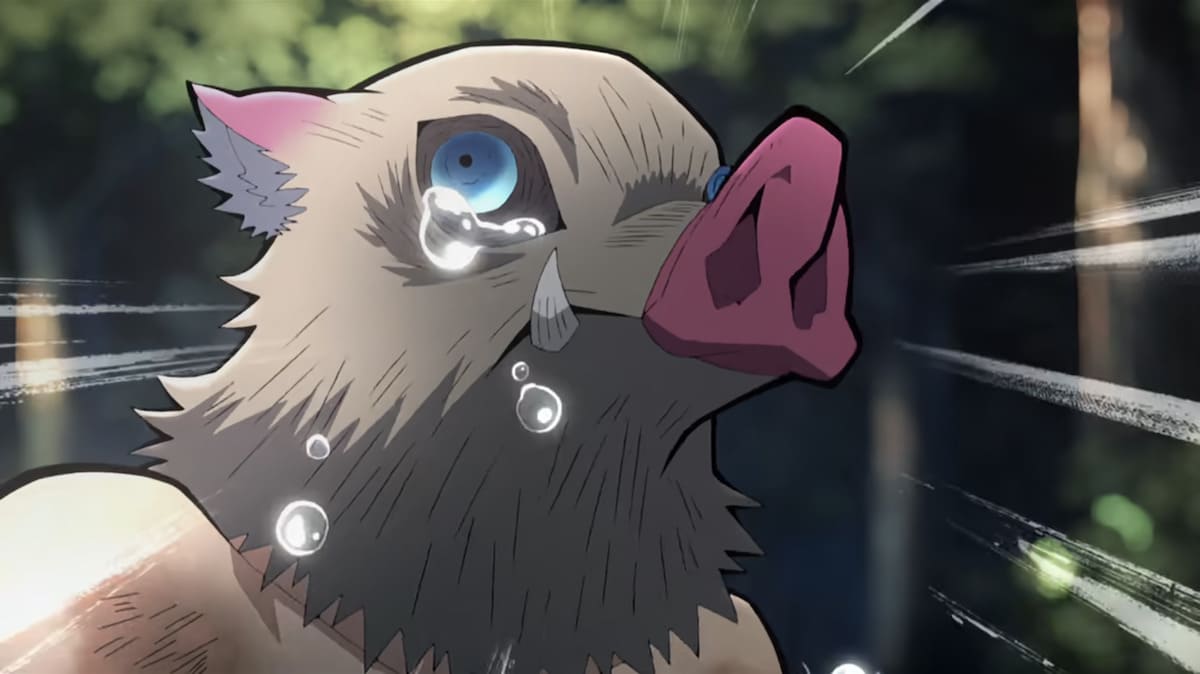In this article, I’m going to explain Japanese grammar and vocabulary based on Inosuke Hashibira’s line “悔しくても泣くんじゃねぇ”.
Let’s have fun learning Japanese through Demon Slayer!
The Basic Information of The Line
The basic meaning
in Japanese: “悔しくても泣くんじゃねぇ”
in Hiragana: “くやしくてもなくんじゃねぇ”
in Romaji: “Kuyashikute mo naku n ja nee”
Meaning: “Even if you’re frustrated, don’t cry.”
The situation in which the line was spoken

This section contains spoilers.
This is the scene after the fight between Kyojuro Rengoku and Akaza. Kyojuro Rengoku is killed by Akaza. Tanjirou and Zenitsu weep and mourn, but Inoske pleads with them not to cry.
Inoske is not crying, but telling them that it is important to connect the will of the dead to the future.
Grammatical Structure
悔しくて (くやしくて / kuyashikute)
This is the te-form of the adjective “悔しい” (kuyashii), meaning “frustrating” or “regretful.” The te-form is used here to connect to the following clause, often indicating cause or reason. In this context, it means “even if you are frustrated.”
も (mo)
This is a particle meaning “also” or “even.” In this sentence, it emphasizes the condition “even if.”
泣く (なく / naku)
This is the verb “to cry.”
ん (n)
This is a colloquial contraction of “の” (no), which in this context functions to nominalize the preceding verb phrase, turning “泣く” (to cry) into “crying.”
じゃ (ja)
This is a colloquial contraction of “では” (de wa), which is used to form a negative imperative or prohibition in combination with “ねぇ.”
ねぇ (nee)
This is a colloquial, masculine form of “ない” (nai), which negates the verb. Here it is used to give a rough or casual command not to do something.









Related articles